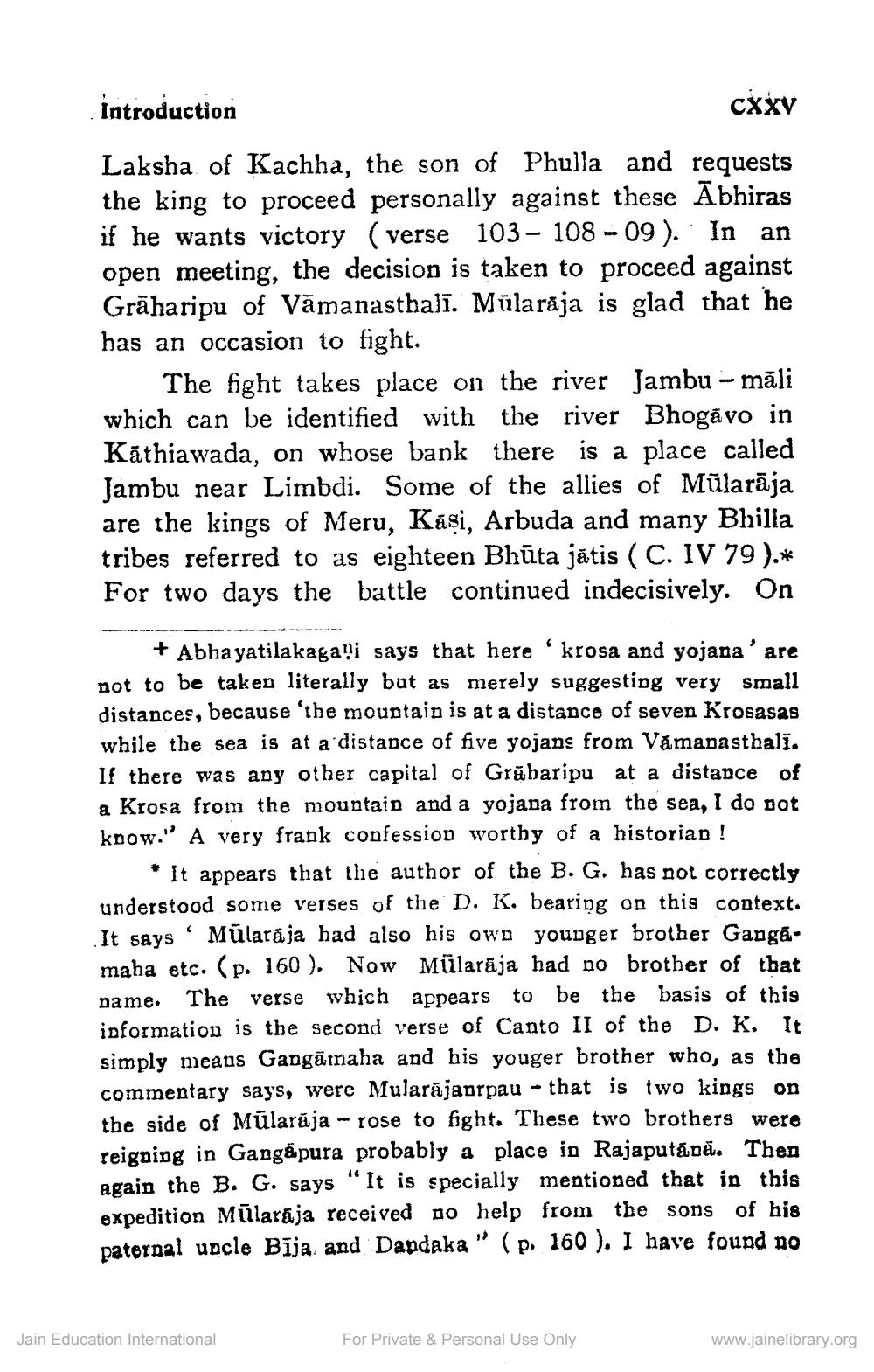________________
Introduction
CXXV Laksha of Kachha, the son of Phulla and requests the king to proceed personally against these Ābhiras if he wants victory (verse 103 - 108 - 09). In an open meeting, the decision is taken to proceed against Grāharipu of Vāmanasthalī. Mūlarája is glad that he has an occasion to fight.
The fight takes place on the river Jambu - māli which can be identified with the river Bhogāvo in Kāthiawada, on whose bank there is a place called Jambu near Limbdi. Some of the allies of Mūlarāja are the kings of Meru, Kāsi, Arbuda and many Bhilla tribes referred to as eighteen Bhūta jūtis (C. IV 79).* For two days the battle continued indecisively. On
+ Abhayatilakaga?i says that here "krosa and yojana' are not to be taken literally but as merely suggesting very small distances, because 'the mountain is at a distance of seven Krosasas while the sea is at a distance of five yojans from Vámanasthali. If there was any other capital of Grābaripu at a distance of a Krosa from the mountain and a yojana from the sea, I do not know." A very frank confession worthy of a historian !
* It appears that the author of the B. G. has not correctly understood some verses of the D. K. bearing on this context. It says' Mūlarája had also his owo younger brother Gangamaha etc. (p. 160 ). Now Mülarāja had no brother of that name. The verse which appears to be the basis of this information is the second verse of Canto II of the D. K. It simply means Gangārnaha and his youger brother who, as the commentary says, were Mularājaprpau - that is two kings on the side of Mūlarăja - rose to fight. These two brothers were reigning in Gangäpura probably a place in Rajaputādā. Then again the B. G. says "It is specially mentioned that in this expedition Mūlarāja received no help from the sons of his paternal uncle Bīja and Dandaka" (p. 160 ). I have found no
Jain Education International
For Private & Personal Use Only
www.jainelibrary.org




